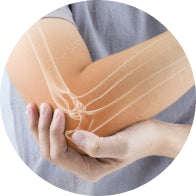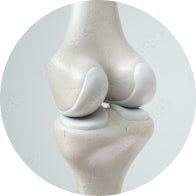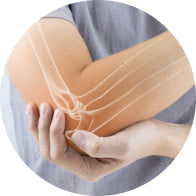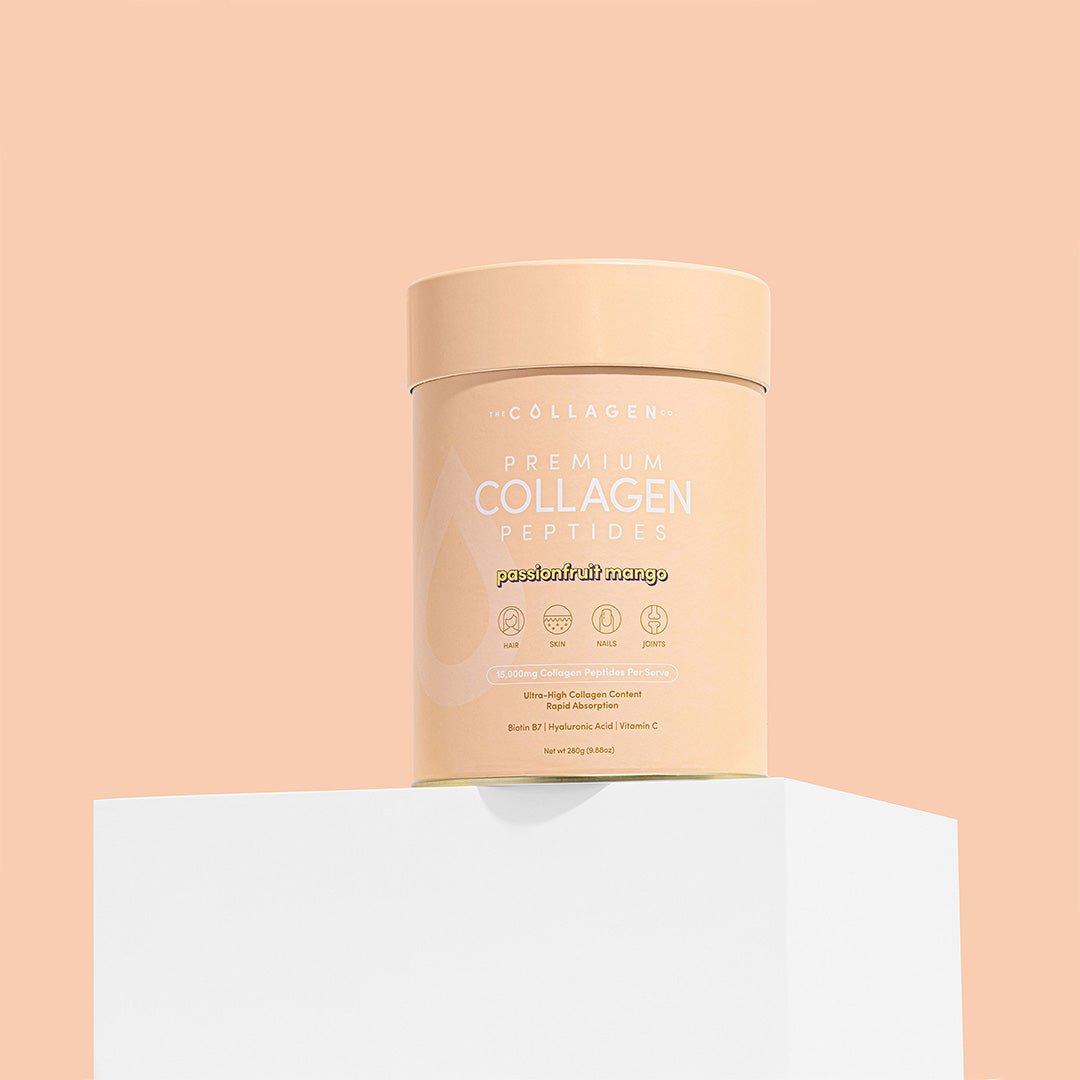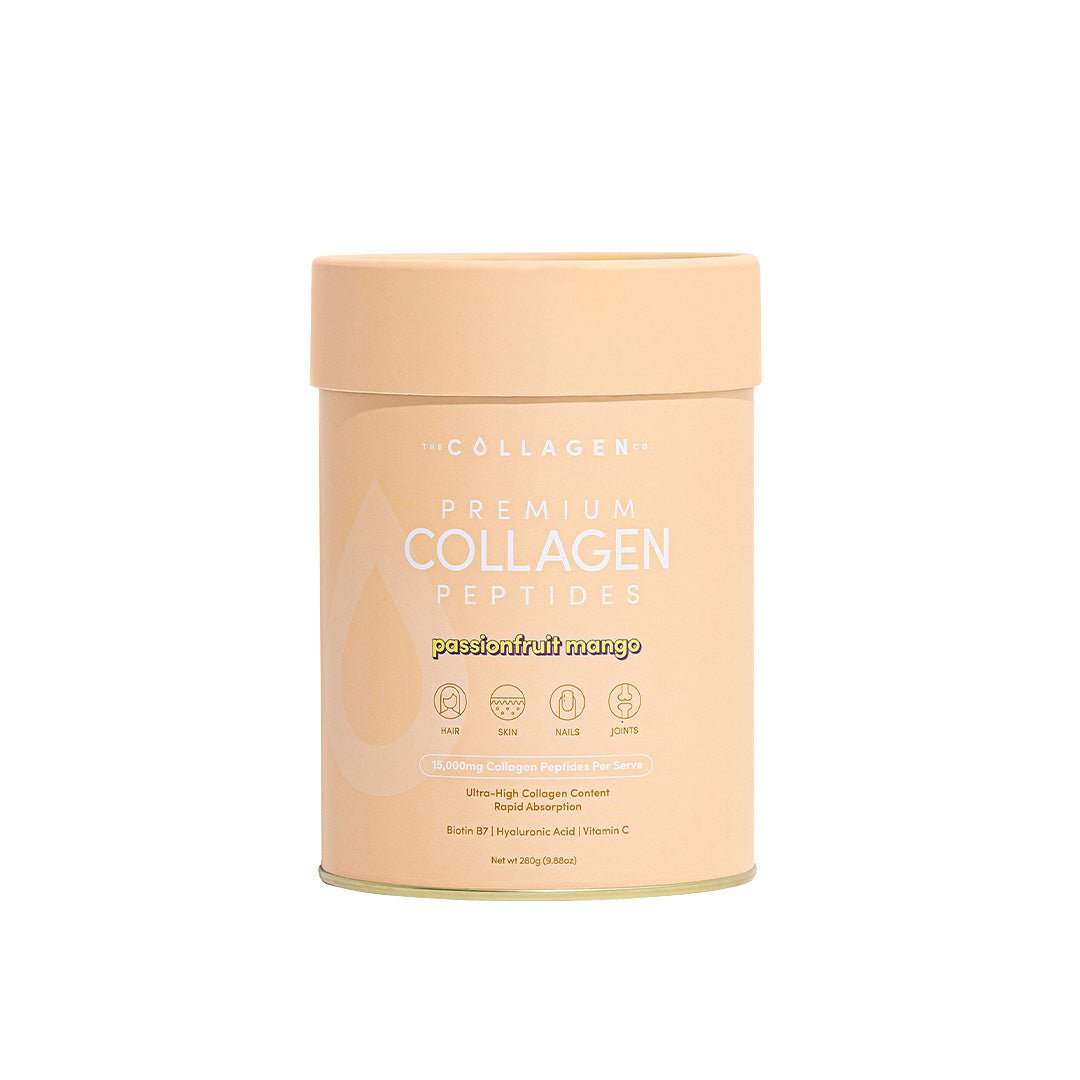What is collagen?
Derived from the Greek word "kólla”, which means glue, collagen is the main structural protein holding your body together.
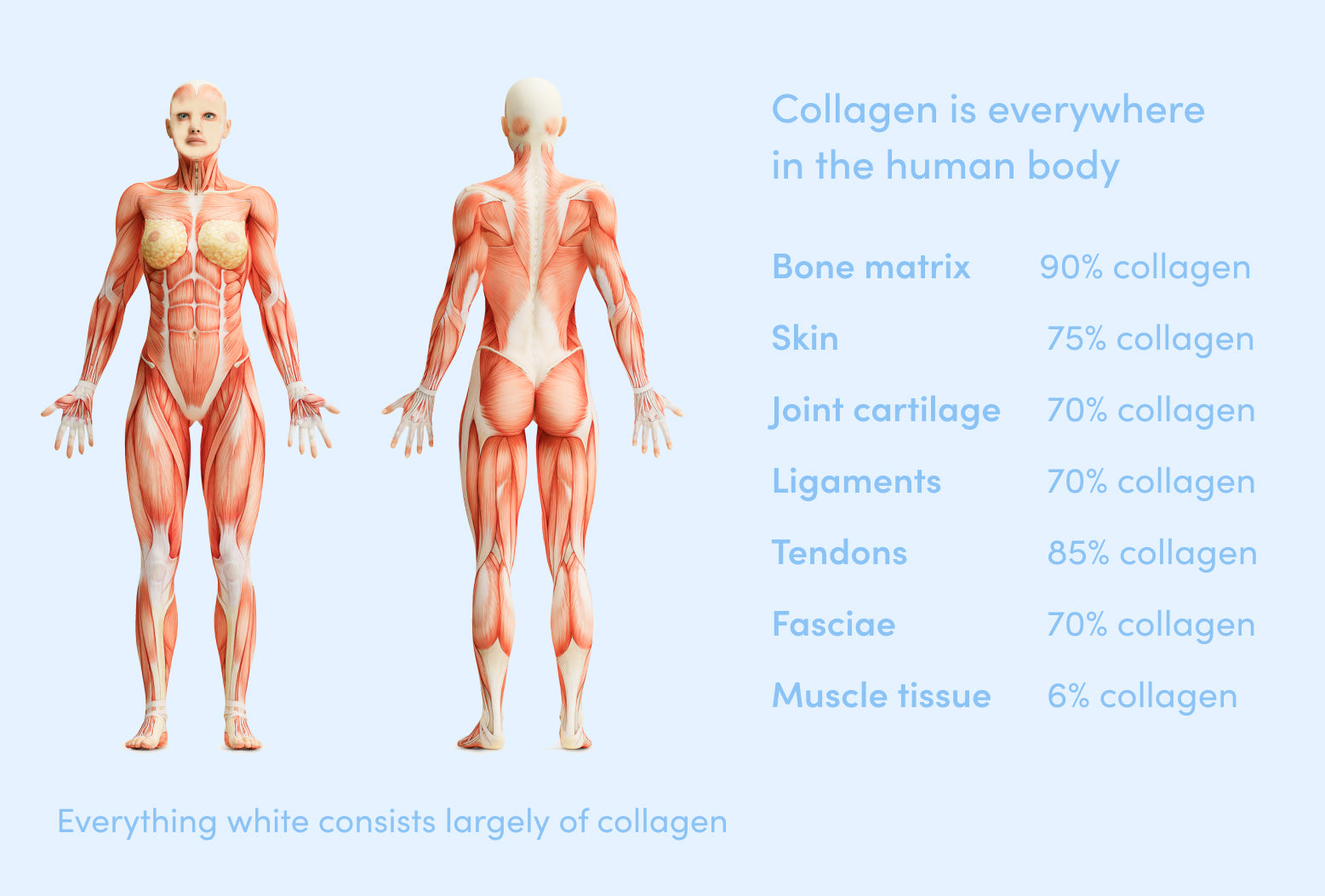
Collagen is the main component of connective tissue and is the most abundant protein in the human body.
It makes up approximately 30% of the whole body and 70% to 80% of the skin's protein content. As a result, you'd be hard-pressed to find a body part that doesn't contain collagen. It's in your skin, hair, bones, cartilage, digestive system, and more.
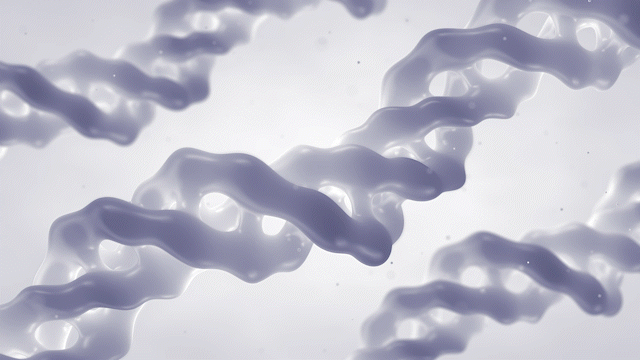
The helix structure of collagen
If you zoom in on a single collagen protein, you’d see that it’s made up of 3 chains of amino acids tightly coiled around each other. This makes collagen very strong and flexible — so it can give strength and elasticity to the skin, plus support muscles, tendons, and bones.
Collagen keeps your skin dewy, bones and nails strong,
and joints creak-free… until it doesn’t.
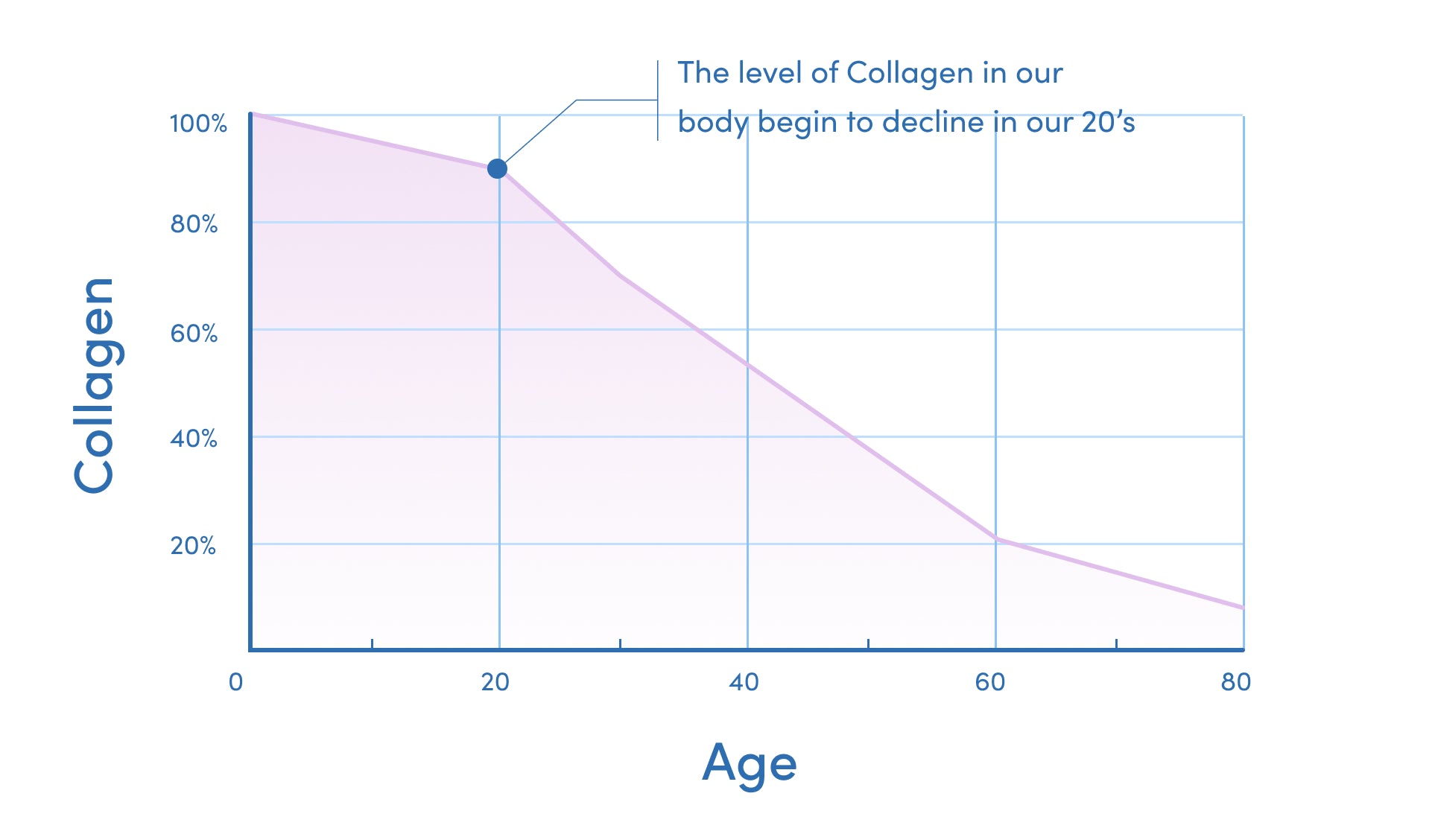
Your body struggles to replace the collagen you’re losing as quickly as it's breaking down, starting from your 20s. As a result, you lose, on average, 1% of your collagen yearly.
Two things behind this decline

The natural ageing process
Like all cells in your body, collagen-producing cells (like fibroblasts in the skin and chondrocytes in the cartilage) accumulate DNA damage with age.
That means the older you get, the fewer optimally functioning collagen-producing cells you’ll have in the body, naturally decreasing your collagen levels.
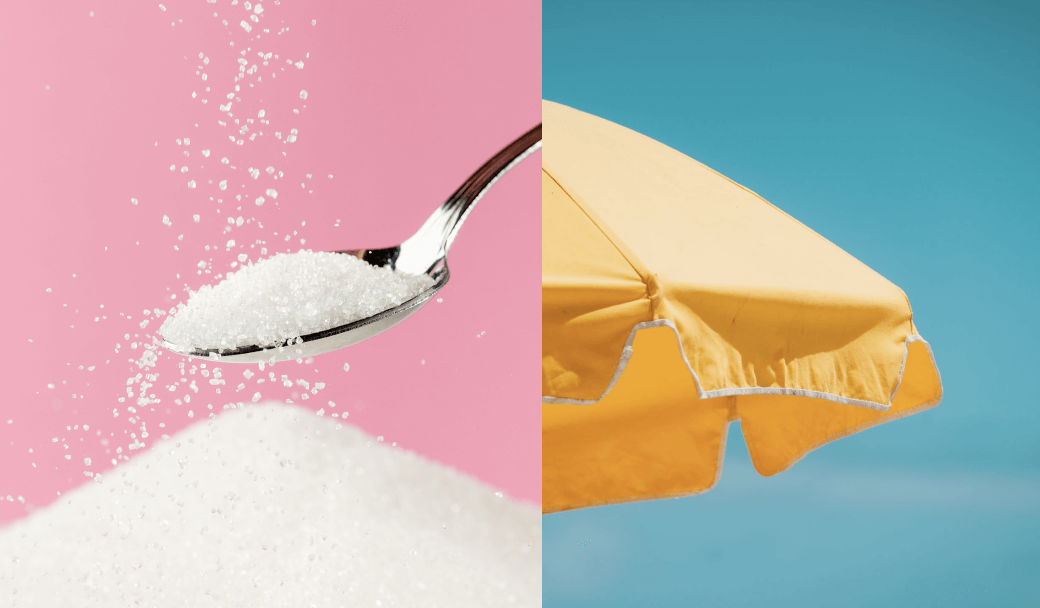
Oxidative stress
While free radicals are a natural by-product of normal cellular processes, your body can also produce excessive amounts (a phenomenon known as oxidative stress) in response to external aggressors. Examples include:
- UV Rays
- Air pollution
- Inflammatory diets
These highly unstable and reactive molecules can steal electrons from healthy, collagen-producing cells — damaging them irreversibly. This, in turn, speeds up the rate at which you lose collagen
A decline in collagen production translates
to a loss in structure. And hello, unpleasant
head-to-toe symptoms.
Fight back against ageing and oxidative damage with hydrolysed collagen peptides
- 1
- 2
- 3
What are hydrolysed collagen peptides?
Remember what we said about the structure of a single collagen protein? That's right: it's a triple helix of 3 amino acid chains. But what we didn't mention was that each of these chains is over 1,400 amino acids long. Meaning? Collagen is a HUGE (yes, all-caps) molecule. And due to its size, your body may have difficulties absorbing collagen.
This, in turn, limits the extent of wellness benefits you’d see from collagen supplementation. So how can we change that? Answer: using hydrolysis to make collagen molecules smaller.
This process uses water and enzymes to break the chemical bonds between proteins — chopping collagen molecules into shorter, easily absorbed amino acids. And there you have it: hydrolysed collagen peptides.
Do they even get to where they need to be?
But wait: won't your body simply digest smaller collagen peptides into single amino acids? How's that different from if you were to eat any other protein source? While it was thought that all proteins and peptides were completely broken down into their constituent amino acids in the digestive tract, recent research shows that this is not the case for collagen.
Several collagen dipeptides and tripeptides bypass complete digestion, leaving as many as 10% remaining intact as they enter the bloodstream. The body will then shuttle these hydrolysedbioactive peptides to "areas of need" (e.g., skin, joints, and gut) where they can exert their beneficial effects.
Bottom line? If your hydrolysed collagen peptides are small enough to bypass digestion (less than 3kDa in molecular weight), you needn’t worry about their efficacy.
Well, where’s the proof?
There are tons — but let’s start with the following.
SKIN
2015 study published in the Journal of Cosmetic Dermatology:
Researchers found that women who consumed 10 grams of collagen peptides daily for 10 weeks had an 8% increase in collagen density in the dermal layer, while no increase was found in the placebo group.
HAIR
2020 study published in Nutrafoods:
Researchers found that women who consumed 2.5 grams of collagen peptides daily for 16 weeks experienced a statistically significant increase in hair thickness, while those in the placebo group reported a slight decrease.
NAILS
2017 study published in the Journal of Cosmetic Dermatology:
Researchers found that participants who took 2.5 grams of collagen peptides daily for 6 months found that nail growth increased by 12%, and nail breakage decreased by 42%.
GUT HEALTH
2022 study published in JMIR Formative Research:
Researchers found that participants who took 20 grams of collagen peptides daily for 6 weeks experienced a reduction in uncomfortable digestive symptoms, including bloating.
JOINTS
2014 study published in Agro Food Industry Hi Tech:
Researchers found that participants with knee osteoarthritis who took 6 grams of collagen peptides daily for 6 months reported an improvement of 32% in joint pain, 44% in stiffness, and 22% in function.

